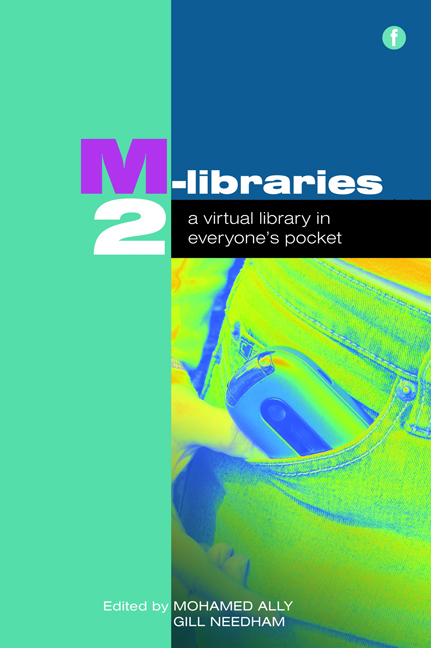Introduction
Published online by Cambridge University Press: 08 June 2018
Summary
This book is about bringing the library to the learner using the mobile device that the learner already uses for other activities. The current estimate is that there are over four billion mobile phones in the world, 75% of them in developing countries (The Economist, 2009). The biggest increase in the acquisition of mobile phones over the past ten years has been in developing countries. As the use of mobile technology grows globally, libraries are digitizing information for access by anyone, from anywhere and at any time. Hence, the use of mobile devices to access library information will allow everyone to have a virtual library in their pocket.
The role of mobile technology in society
Different sectors of society are using mobile technologies to reach customers and members of society. Mobile banking is allowing people to conduct their banking from anywhere and anywhere using mobile technology. This allows for real-time transactions that benefit both the banks and their customers. In healthcare there is mobile health, where citizens can access health information from anywhere to help prevent illness and to find healthcare advice. Mobile agriculture gives farmers the ability to access information on growing healthy crops, determine market demands for crops and decide on the market price for their produce. This information allows farmers to make informed decisions at the right time to maximize their profits. Mobile shopping puts shopping in the consumer's pocket, to shop from anywhere and at any time. Consumers are able to compare the prices and quality of products using mobile devices before deciding which one to buy and from whom to buy it. Mobile government gives citizens access to government information using their mobile device; hence, government in the citizen's pocket. Mobile fishing enables workers out in the sea and rivers to access up-to-date information on types of fish, the price of fish and market demands for the different types of fish. This provides fishery workers with current information on which to base decisions. Mobile learning, puts the school into everyone's pocket, to learn at their own convenience. Now we have the mobile library, where learners will have a library in their pockets to access information at any time and from anywhere.
- Type
- Chapter
- Information
- M-Libraries 2A virtual library in everyone's pocket, pp. xxxiii - xxxviPublisher: FacetPrint publication year: 2010

